"But what do they all say, in the end? They say that our vacuum is stable . And why do they say that? Because Sarumpaet required them to do so! If they’d implied anything else, he would have considered them to be a failure. The stability of the vacuum is not a prediction that emerges from some deep principle that had to be satisfied, regardless; it was the number one design criterion for the whole theory. Sarumpaet certainly found some simple and beautiful axioms that met his goal, but mathematics is full of equally beautiful axioms that don’t get to govern everything that happens in the universe."
Sophus halted again, arms folded, head inclined. To Tchicaya he seemed to be pleading for forbearance; what he’d just stated was so obvious and uncontroversial that half the audience had probably found it baffling, if not downright offensive, that he’d wasted their time spelling it out for the thousandth time.
"Our vacuum is stable: that was the hook on which Sarumpaet hung everything. So why did he have such unprecedented success, despite basing his entire theory on something we now know to be false?"
Sophus let the question hang in the air for a moment, then changed tack completely.
"I wonder how many of you have heard of superselection rules ? I only learned the phrase myself a month ago, while doing some historical research. They’re an arcane notion from the dawn of quantum mechanics, and they only persisted in the vocabulary for the first couple of centuries, before people finally got things straightened out.
"Everyone knows that it’s an axiom of quantum mechanics that you can form superpositions of any two state vectors: if V and W are possible physical states, then so is aV + bW, for any complex numbers a and b whose squared magnitudes sum to one. If that’s true, though, then why do we never see a quantum state with a fifty-percent probability of being negatively charged, and a fifty-percent probability of being positively charged? Conservation of charge is not the issue. Long after people could routinely prepare photons that were equally likely to be on opposite sides of a continent, why couldn’t they manage to prepare a system that was equally likely to be an electron here and a positron here" — Sophus held up his left hand, then his right — "or vice versa ?
"For a hundred years or so, most people would have answered that question by saying: Oh, there’s a superselection rule for charge! You can usually combine state vectors…but not if they come from different superselection sectors of the Hilbert space! Apparently there were these strange ghettos that had been cordoned off from each other, and whose inhabitants were not allowed to mix. Cordoned off how ? There was no mechanism, no system; it was just an inexplicable fact dressed up in some fancy terminology. But people went ahead and developed methods for doing quantum mechanics with these arbitrary borders thrown in, and the lines on the map became something to be memorized without too much scrutiny. If some innocent novice asked a jaded elder student, Why can’t you have a superposition of different charges? the reply would be, Because there’s a superselection rule forbidding it, you idiot! "
Sophus lowered his gaze slightly before adding acerbically, "We’re far more sophisticated now, of course. No one would tolerate mystification like that — and besides, every child knows the real reason. An electron and a positron in the same position would be correlated with vastly different states for the surrounding electric field, and unless you could track all the details of that field and incorporate them into your observations, you’d have no hope of recognizing the state as a superposition. Instead, the two different charge states would decohere, and you’d be split into two versions, one believing that you’d detected an electron, the other that you’d detected a positron. So although there are no superselection rules, the world still looks so much like the way it would look if there were that all the mathematics that revolved around the term lives on, in various guises."
Tchicaya sensed a sudden change in the atmosphere around him. When he’d glanced at people before, most had seemed puzzled that they were being offered such mundane observations. Tolerant, and prepared to go on listening for a while, thanks to Sophus’s reputation, but clearly not expecting much from yet another tortured reexamination of their field’s basic assumptions. Now there was a shifting of bodies, a creaking of seats, as people felt compelled to transform their postures of indifference or mild disappointment into something altogether more vigilant.
As this mood swept the room, Tchicaya felt gooseflesh rise along his spine. He couldn’t claim to have anticipated the words he heard next, but they thoroughly merited his body’s reaction.
"I believe there are no Sarumpaet rules," Sophus proclaimed. "Not the originals, and not some grander, more perfect version that will explain what happened at Mimosa. But the world still looks so much like the way it would look if there were that we couldn’t help but think such rules existed."
In the silence that followed, Tchicaya turned to Mariama, wondering if she’d picked up more from Sophus’s earlier remarks than he had, but she appeared to be equally stunned. Tchicaya was beaming with delight at the audacity of Sophus’s claim. Mariama looked dismayed, almost fearful.
Sophus continued. "How can the Sarumpaet rules seem to be true, when they’re false? How can our vacuum seem to be stable, when it isn’t? I believe that the right way to answer these questions is virtually identical to the resolution of another paradox, one that was dealt with almost twenty thousand years ago. How can the universe appear to obey classical mechanics, when it really obeys quantum mechanics?
"What creates the illusion of classical mechanics is our inability to keep track of every aspect of a quantum system. If we can’t observe the whole system — if it’s too large and complex in itself, or if it’s coupled to its surroundings, making them part of the system — we lose the information that distinguishes a genuine superposition, where alternatives coexist and interact, from a classical mixture of mutually exclusive possibilities.
"I believe the same effect is responsible for the Sarumpaet rules. How can that be? The Sarumpaet rules are quantum rules. They apply to systems that have not been rendered classical by decoherence. How can interaction with the environment explain anything wholly quantum-mechanical ?"
Sophus smiled wearily. "It’s been staring us in the face for twenty thousand years. An electron — a charged particle, which transforms the ordinary vacuum around it into an entirely different state — still obeys quantum mechanics in all of its other degrees of freedom. Its position is quantum-mechanical, its charge is classical. Even when we do our best to isolate an electron from its surroundings, we actually fail miserably at half of the task, while succeeding at the other half. So decoherence hides superpositions of different charge states from us, but not different position states. Our failure looks classical, our success is quantum-mechanical.
"We thought the Sarumpaet rules were pure quantum mechanics: the final story, the lowest level, the rules that held for a system in perfect isolation. Of course, we accepted the fact that, in practice , we could never isolate anything from its surroundings completely, but that wasn’t the point. The universe itself, the total system, was assumed to be obeying the Sarumpaet rules — because whenever we did our best to examine any small part of it, separated out as scrupulously as possible, those were the laws that held.
Читать дальше
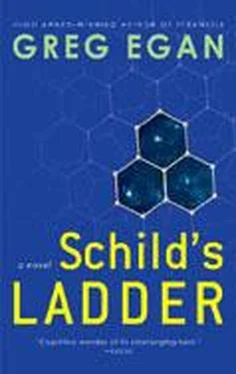
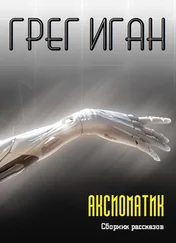
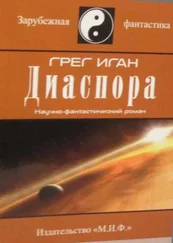
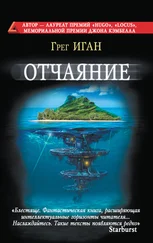
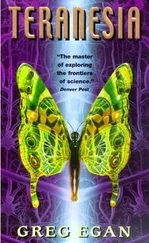
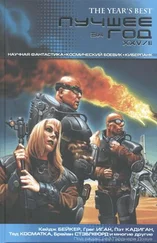


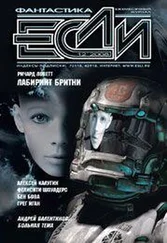
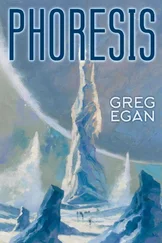
![Грег Иган - Рассказы [компиляция]](/books/419837/greg-igan-rasskazy-kompilyaciya-thumb.webp)
